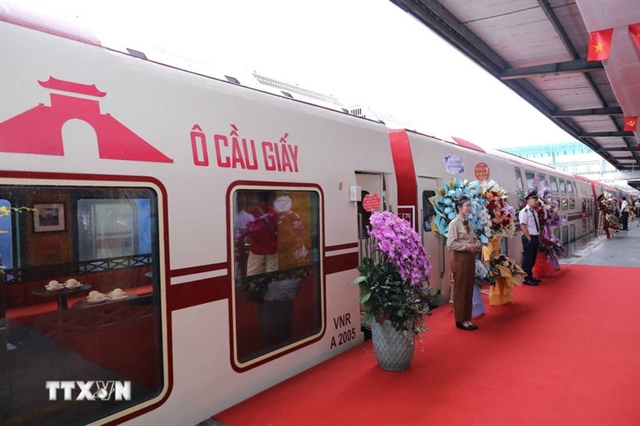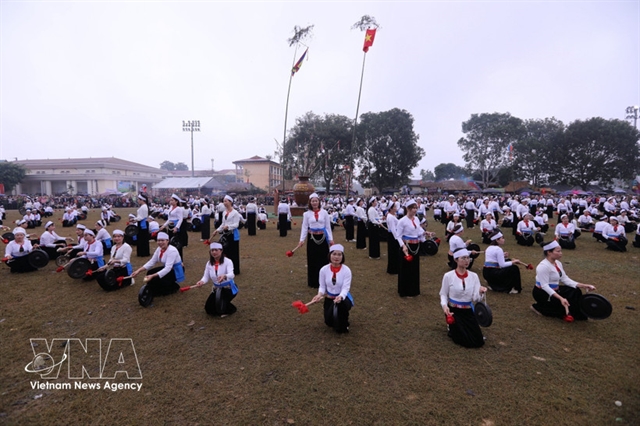Pension assets industry in China could grow to an estimated total of RMB 22-28 trillion by 2030, creating new opportunities for all participants, including global asset managers.
HONG KONG SAR -
Media OutReach - 29 June 2023 - KPMG China and ASIFMA today launched their joint report
"China Pensions Reform: Winning strategies for global asset managers amid evolution in retirement market", which provides perspectives on some of the recent and potential reforms of China's pension fund market, and considerations for global asset management firms in forming a winning strategy in this space.
"The journey to provide a better retirement for its large population of older people and to help ensure the long-term social stability of the country will not be simple. Creating a sustainable pensions framework is a multi-dimensional challenge, which will require stakeholders across public and private sectors to work together. However, with the urgent need for reform, China is ready to take practical measures including taking advantage of lessons from other jurisdictions as well as embracing new technology-enabled solutions," said
Abby Wang, Partner, Head of China, Asset Management, KPMG China.
While China's ageing population is creating challenges for the retirement system, it is also creating opportunities to find solutions in the form of pensions products.
"Given the demographic change in China there is an urgent need for reform as the current pension system will be unable to cope. This means that there are opportunities for global asset managers in China's pension market as the nation's retirement programme undergoes a major programme of reforms. In particular, the recent introduction of private individual pensions has created a new and potentially massive market," said
Eugenie Shen, Managing Director and Head of ASIFMA Asset Management Group (AAMG).
China's reforms started with the basic pensions introduced under Pillar 1 in 1991. Then, between 2004 and 2014, it introduced enterprise annuities (EA) and occupational annuities (OA) under Pillar 2. These include contributions from enterprises and employees. However, participation in EA has remained very low. The most significant recent reform was the arrival of Pillar 3, which opens the market to individual private pensions for the first time. The Pillar 3 market is projected to grow to RMB 4 trillion under the current regulatory landscape by 2030 and could be RMB 7 trillion if the expected reforms are carried out.
"This area is very new and has so far been undergoing pilot programmes, but the potential is clearly promising as a new form of investment, especially in light of recent challenges in the Chinese real estate market where Chinese investors have traditionally put their savings in addition to cash. Already around 30 million tax-deferred individual accounts were set up shortly after they were launched last November. We see particular potential here for foreign players who have experience in pensions," added
Vivian Chui, Head of Securities & Asset Management, Hong Kong, KPMG China.
A number of interrelated elements are fuelling the case for change in China's pensions system: an ageing population, rising healthcare expenses, unsustainable funding for Pillar 1, and inadequate pensions provisions. The research in this report shows that the current situation will not be able to support the nation's growing elderly population in the future.
But reform of the pensions system is already under way, and while the Central Government has not revealed a detailed plan, there are compelling reasons to believe further changes are likely. The potential reforms come under five key themes:
- The overall pension system could see a clear target replacement ratio set, as well as further clarity on how the three-pillar system will be designed, and guidance on the overall roadmap.
- Streamlining of the current regulatory governance framework would make it easier for firms to participate in the market, giving them the opportunity to share their expertise in delivering products and services to help address the pension challenge.
- The operational design of each pillar could be optimised to increase the level of participation and contribution. For example, mandatory enrollment for enterprise annuities under Pillar 2, and tax incentives for participation in Pillar 3.
- The types of eligible investments for pension products could be relaxed further. Greater diversification, including more access to overseas products, would help pensions savers to obtain stable, long-term risk-adjusted returns.
- There will also need to be a change to individuals' mindset and behaviour as responsibility for funding retirement shifts from the state and family to the individual. As private pensions in particular are a new concept, education will be needed to ensure people are aware of the benefits of pension savings.
As these market reforms accelerate, Pillar 2 and Pillar 3 pension assets could grow to an estimated total of RMB 15-21 trillion by 2030, creating new opportunities for all participants, including global asset managers.
"Foreign financial firms will need to consider their circumstances and competitive edge when deciding where to play in the China pensions market. They will also need to actively consider the regulatory environment and work to build relationships with the various regulators," said
Chee Hoong Tong, Partner, Asset Management, KPMG China. "While there are huge opportunities, foreign financial firms will need to carefully consider their strategies as they enter the market. Having a proven track record in investment return and risk management capabilities will help firms to win Pillar 1 mandates, which are issued quite infrequently. For Pillar 2, it is additionally important for firms to build and maintain relationships with trustees in both enterprise annuities and occupational annuities", continued Mr. Tong from KPMG China.
"Foreign asset managers interested in the market for individual private pensions under Pillar 3 need to carefully consider their strategies", continued Ms. Shen from ASIFMA.
"As the Pillar 3 framework is rolled out, key success factors will include product design, where overseas firms already have considerable experience. Product distribution is another key factor, to ensure that they reach the large potential customer base and have access to data from customers. Localised marketing campaigns as well as an understanding of the unique Chinese market will help global asset managers to access the China pensions opportunity," concluded Mr. Tong.
The full paper can be found
here.Hashtag: #KPMGChina
The issuer is solely responsible for the content of this announcement.
About KPMG China
KPMG China has offices located in 31 cities with over 15,000 partners and staff, in Beijing, Changchun, Changsha, Chengdu, Chongqing, Dalian, Dongguan, Foshan, Fuzhou, Guangzhou, Haikou, Hangzhou, Hefei, Jinan, Nanjing, Nantong, Ningbo, Qingdao, Shanghai, Shenyang, Shenzhen, Suzhou, Taiyuan, Tianjin, Wuhan, Wuxi, Xiamen, Xi'an, Zhengzhou, Hong Kong SAR and Macau SAR. Working collaboratively across all these offices, KPMG China can deploy experienced professionals efficiently, wherever our client is located.
KPMG is a global organization of independent professional services firms providing Audit, Tax and Advisory services. KPMG is the brand under which the member firms of KPMG International Limited ("KPMG International") operate and provide professional services. "KPMG" is used to refer to individual member firms within the KPMG organization or to one or more member firms collectively.
KPMG firms operate in 143 countries and territories with more than 265,000 partners and employees working in member firms around the world. Each KPMG firm is a legally distinct and separate entity and describes itself as such. Each KPMG member firm is responsible for its own obligations and liabilities.
KPMG International Limited is a private English company limited by guarantee. KPMG International Limited and its related entities do not provide services to clients.
In 1992, KPMG became the first international accounting network to be granted a joint venture licence in the Chinese Mainland. KPMG was also the first among the Big Four in the Chinese Mainland to convert from a joint venture to a special general partnership, as of 1 August 2012. Additionally, the Hong Kong firm can trace its origins to 1945. This early commitment to this market, together with an unwavering focus on quality, has been the foundation for accumulated industry experience, and is reflected in KPMG's appointment for multidisciplinary services (including audit, tax and advisory) by some of China's most prestigious companies.
About ASIFMA
ASIFMA is an independent, regional trade association with over 165 member firms comprising a diverse range of leading financial institutions from both the buy and sell side, including banks, asset managers, law firms and market infrastructure service providers. Together, we harness the shared interests of the financial industry to promote the development of liquid, deep and broad capital markets in Asia. ASIFMA advocates stable, innovative, and competitive Asian capital markets that are necessary to support the region's economic growth. We drive consensus, advocate solutions and effect change around key issues through the collective strength and clarity of one industry voice. Our many initiatives include consultations with regulators and exchanges, development of uniform industry standards, advocacy for enhanced markets through policy papers, and lowering the cost of doing business in the region. Through the
GFMA alliance with
SIFMA in the United States and
AFME in Europe, ASIFMA also provides insights on global best practices and standards to benefit the region. More information about ASIFMA can be found at:
www.asifma.org.

 Media-OutReach Newswire
Media-OutReach Newswire










